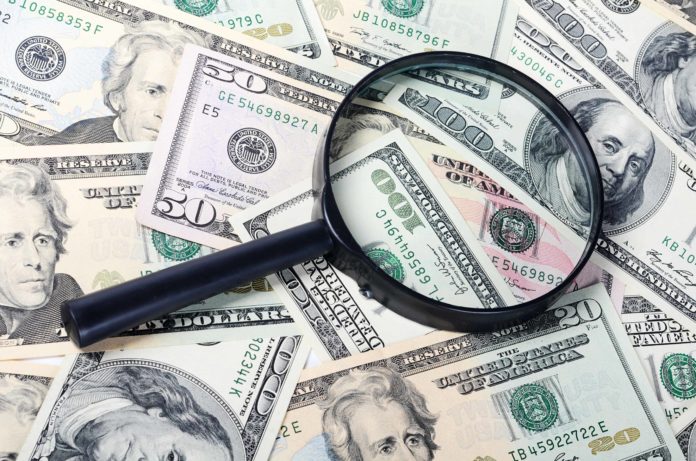When people think of spare cash, they usually think about finding a $20 bill in a jacket pocket they forgot about. However, there could be money that is rightfully due to Americans and they may not even know about it. This source is known as unclaimed property. Millions of Americans across the country are due some sort of this type of property. In fact, the National Association of Unclaimed Property Administrators (NAUPA) estimates that one in ten people have some properties waiting for them to claim. Whether it be a check that a person didn’t deposit or the contents of a safety deposit box, it’s important to know how to review what could be waiting.
What Does It Mean to Have Unclaimed Money?
For those who may be wondering, unclaimed property is a property that has been “abandoned” by sources like a financial institution or a company. For a property to be considered abandoned, there has to be no activity for a certain amount of time. The term “dormancy period” is used to describe this period of inactivity. When this time frame has passed, the property is considered to be abandoned and must therefore be given back to the state, by law. Many individuals have a property waiting for them to claim.
What Varieties of Unclaimed Property Are There?
Unclaimed money can be broken down into two categories: tangible and intangible. The most typical kind of unclaimed property is intangible. Examples of this category include uncashed checks and utility security deposits. On the other hand, tangible unclaimed property is physical assets like military medals or antiques. Unclaimed property can be one of the following:
- Annuities
- Utility security deposits
- Certificates of deposit
- Checking and savings accounts
- Safety deposit boxes
- Customer overpayments
- Insurance payments or refunds
- Mineral royalty payments
- Refunds and stocks
- Trust distributions
- Uncashed dividends
- Uncashed payroll checks
- Traveler’s checks
- Unused gift vouchers and money orders (in some states)
Where to Look for Unclaimed Cash?
Unclaimed property may come from a wide range of sources, so your options for finding it will vary based on the type you’re looking for. Besides, you may take advantage of the extensive search option! Even though there isn’t a federal website that allows the user to search the whole country for unclaimed money, there are other options to keep in mind.
Unclaimed money or property that is legitimately yours may be found using official state government databases. If you want to know which search engine is best for your state, you can visit the NAUPA website. Remember that each state is different, which is why they’ll set their own guidelines for how to get your hands on the money. In addition to using a state search tool, you can try other tools when looking for money from these sources:
- Insurance Providers
- Employment
- Banking and Investments
- Taxes
- Foreign Governments
Insurance Providers
The Veterans Affairs (VA) Life Insurance program and the Federal Housing Administration (FHA) insurance program are two typical insurance sources for unclaimed property. To find out whether you are entitled to any unclaimed funds from your VA Life Insurance, you can search the VA’s database. Nevertheless, you will find that the database won’t show anything about unclaimed money from specific types of insurance like:
- Veterans’ Group Life Insurance (VGLI) from 1965 to this year.
- Servicemembers’ Group Life Insurance (SGLI) from 1965 to this year.
The FHA may owe you a refund. In this case, the reimbursements would be issued by the United States Department of Housing and Urban Development (HUD). This is due to the fact that the FHA is a division of that department. Through the HUD database, anyone can search for this unclaimed money.
Employment
Basically, there are two ways to get your unclaimed money from your employer. The U.S. Department of Labor (DOL) may be able to assist you in your search for back pay. If your company has violated any employment regulations, the DOL may be able to help you get the money you are due. You can check if you are due back wages on the Department of Labor’s website.
However, there is another resource you can look into if you believe you are due pension money from previous jobs. There is a possibility that a company goes out of business, or terminates a defined benefit pension plan. In that case, you might be due an unclaimed pension as a former employee. The Pension Benefit Guaranty Corporation (PBGC) can help you find and claim that money.
Banking and Investments
There are a lot of situations in which you could be due money that has been left unclaimed. Most often, unclaimed money comes from one of four sources:
- SEC Claims Funds
- Bank Failures
- Credit Union Failures
- Savings Bonds
Since the Federal Deposit Insurance Corporation (FDIC) insures deposits in the event of bank failure, you can easily check your account to see if any money is still there. In case of a failed credit union, however, you can check with the National Credit Union Administration (NCUA) to see if there are any unclaimed funds.
In regards to unclaimed funds that are related to the Securities and Exchange Commission (SEC), there could be enforcement cases. These cases are when a person (or company) owes money to an investor. Check the SEC’s website to see if you are eligible for any money. Last but not least, some people may be due savings bonds. On the TreasuryHunt.gov website, you can check to see if there are any matured savings bonds that no longer earn any interest.
Taxes
Just like any tax-related concern, you can check out the Internal Revenue Service (IRS). Unclaimed tax refunds are no exception. If you believe that you are eligible for a tax refund, you should contact the IRS over the phone or you can visit their website to find out more.
Foreign Governments
If you’re a regular traveler, there’s a high chance that foreign governments could owe you money. In such cases, you can file an international claim through this website of the United States Department of Treasury.
Bottom Line
In short, the states hold your financial accounts and properties that have been turned over to them. Only properties that haven’t been used for at least one year are returned to the state. To get these properties back you have to claim them depending on the source. You can start looking for money to claim at:
- Insurance Providers
- Employment
- Banking and Investments
- Taxes
- Foreign Governments
The moral of the story here: never let your guard down when it comes to managing your finances. In order to keep your finances under control, you should maintain a high level of attentiveness. Another takeaway is the importance of keeping your contact details (especially your address) up to date. Make sure to check and see if you are due any unclaimed property. You may be in for a pleasant surprise!









